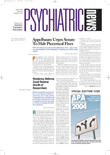Beginning in 2004, American medical school graduates will be required to pass a clinical skills examination as part of Step 2 of the United States Medical Licensing Examination (USMLE).
The U.S. and Canadian medical school classes of 2005 will be the first, complete graduating classes that will be required to take the exam, with students taking the exam in the fall of 2004.
Along with all other current requirements, a passing performance on the clinical skills component of Step 2 will be a prerequisite for registering for Step 3, according to the National Board of Medical Examiners (NBME), which cosponsors the USMLE along with the Federation of State Medical Boards.
The fee for the June 1, 2004, through June 30, 2005, administration of the exam is $975. The examination will be administered year round in Philadelphia, Atlanta, Los Angeles, Chicago, and Houston. Other centers may also be opened.
Performance on the exam will be reported as pass or fail. Examinees will be required to pass these items:
• An integrated clinical encounter consisting of an assessment of data-gathering skills, physical examination skills, and an examinee-recorded postencounter note
• An assessment of communication skills
• An assessment of English proficiency
American medical graduates have not been tested on clinical skills as part of their licensure since 1964. The test was terminated because of complaints that the use of real patients in the clinical encounter rendered it difficult or impossible to compare performance objectively and to standardize the test across test sites.
A new clinical skills exam with actors posing as patients—thereby improving objectivity and standardization—has been required of international medical graduates since 1998. The NMBE says the experience with international medical graduates and field trials with American students have proven that the test can be standardized.
The new exam requirement is intended to address concerns that medical school students are graduating with technical and technological acumen, but without the interpersonal skills required for communicating with patients.
“Poor clinical and communications skills have been linked to a higher incidence of malpractice suits, lower treatment compliance by patients, and decreased patient satisfaction,” according to the NBME.
The test, however, is not without its detractors. The use of proxy actors, designed to address concerns about standardization and objectivity, has been criticized for the converse reason: it objectifies a clinical encounter with a patient, which is in reality complex and as variable as any individual.
“The most sensitive and intuitive students are precisely the ones who have the most trouble interviewing actors,” said Meryl Manley, M.D., an associate professor of psychiatry and director of medical student education at New York University. “Because they are sensitive, they are sensitive to the fact that the actors are just actors.”
Manley told Psychiatric News that one of his students told him the only thing he could think of to ask the patient-actor was: “Why are you doing this?” He added, “The only kind of rapport you can have with a simulated patient is simulated rapport.”
Manley is also president of the Association of Directors of Medical Student Education in Psychiatry (ADMSEP). He emphasized that his skepticism about the clinical skills exam reflects his own opinion, not that of ADMSEP, which has not taken a position on the exam.
Manley said another concern about the clinical exam is that it will begin to drive the curriculum, as educators strive to “teach to the test” to ensure that students pass. This shift in educational priorities may take valuable time away from clinical teaching experiences with real patients who have complex problems, he said, in favor of practice with simulated patients to prepare for the exam.
Manley said at least half of all medical schools already have some form of clinical skills exam built into their curriculum. Now, with the inclusion of an exam for licensure, schools will likely conform their tests to be as similar to the licensing exam as possible to prepare students to pass the test. Thus, he said, “valuable time talking to real patients will be shortened in favor of preparation [with simulated patients] for the exam.”
Manley said there is probably no way to standardize an assessment of clinical skills or to judge performance objectively. And he acknowledged the importance of observing students’ clinical skills. “Everyone agrees that close evaluation of clinical skills is absolutely necessary, and more and more students have been getting through school without observation,” he told Psychiatric News.
Information about the clinical skills exam is posted on the Web at www.usmle.org/news/cse.htm. ▪
